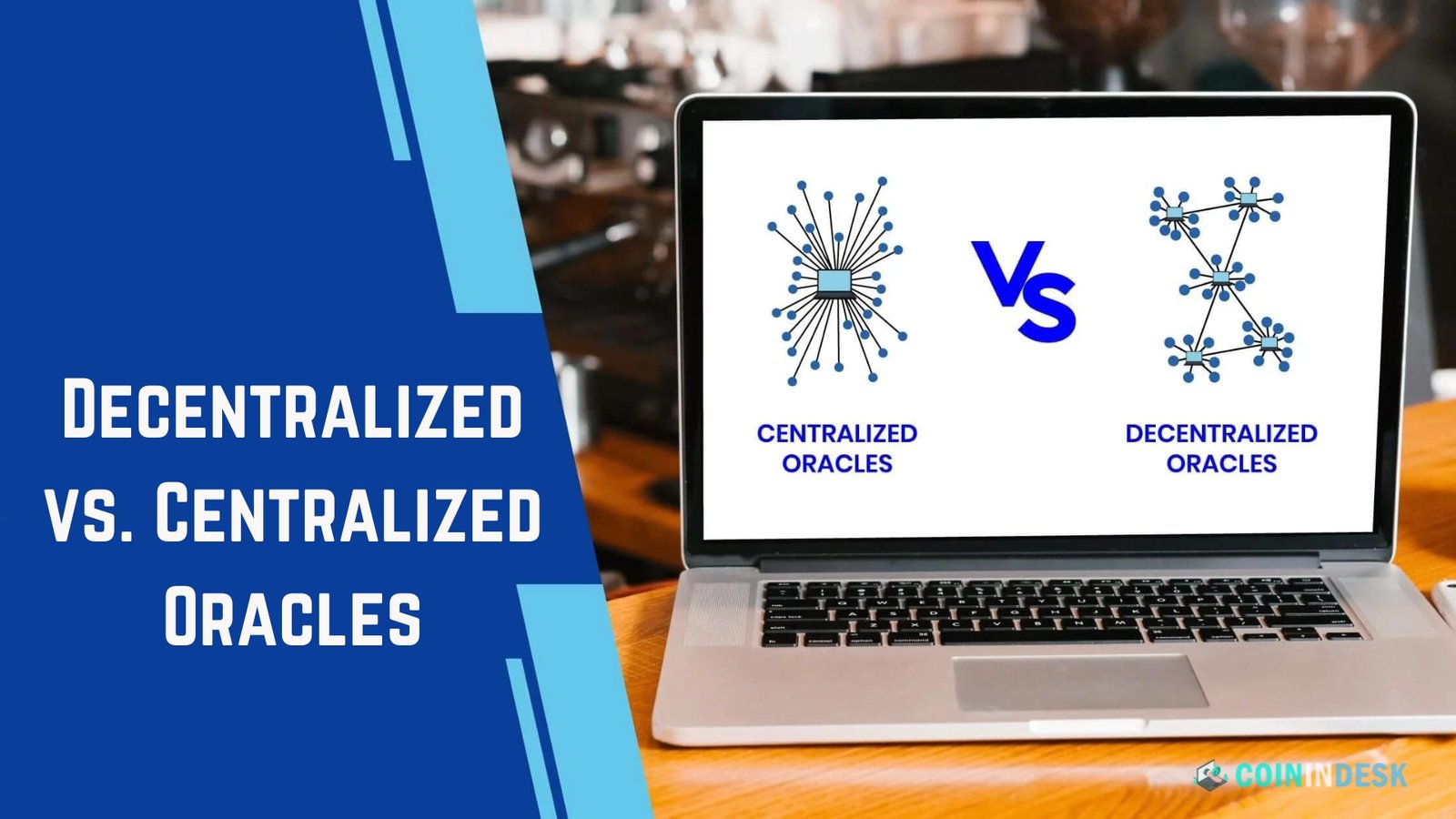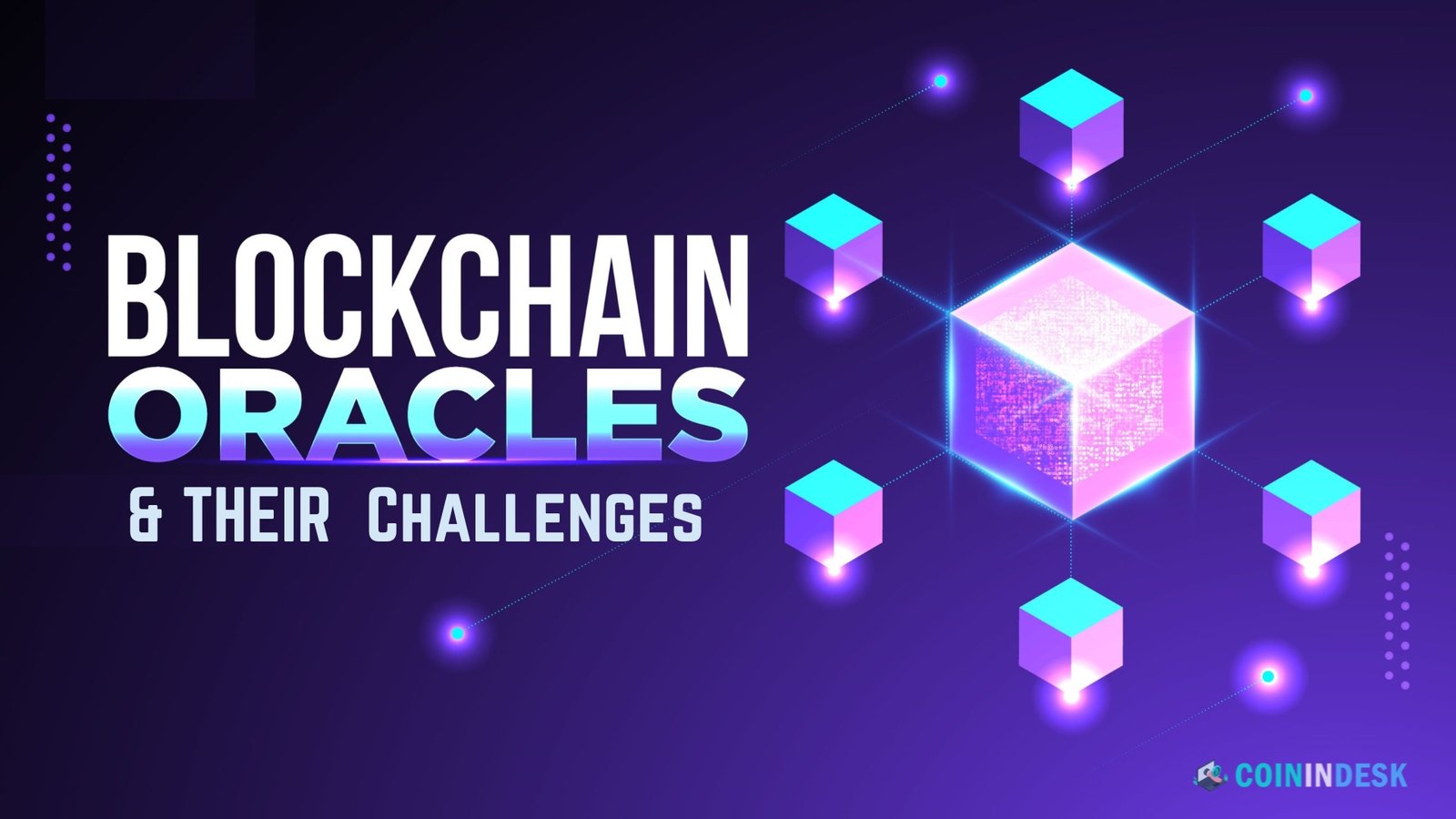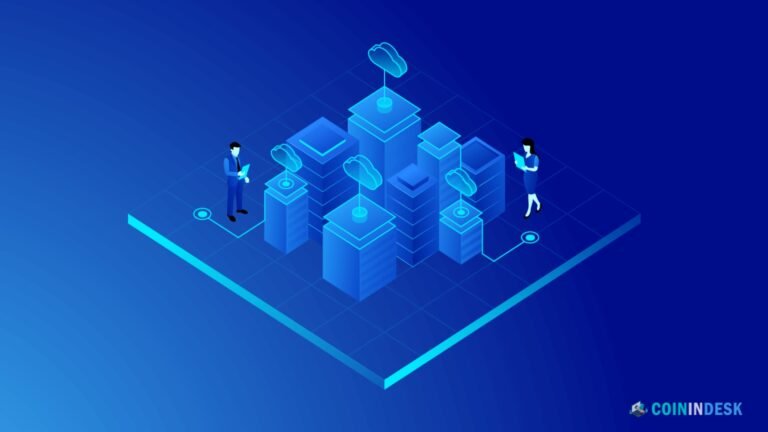Blockchain Oracle: The blockchain ecosystem has brought innovations in processing, verifying, and transferring data. However, blockchains operate in a closed environment, making accessing or verifying external information independently tricky. This is where blockchain oracles come into play, acting as bridges that connect the blockchain world with real-world data and systems. In this article, we’ll explore what blockchain oracles are, their importance, their types, and how they shape decentralized applications (dApps).
What is a Blockchain Oracle?
A blockchain oracle is a service or mechanism that connects blockchain smart contracts to external data sources. Since blockchains are deterministic and isolated systems, they cannot directly access data outside their environment, such as real-time financial prices, weather reports, or even sports results. Oracles are intermediaries that bring real-world data onto the blockchain, allowing smart contracts to execute decisions based on off-chain events.
Oracles allow decentralized applications (dApps) to expand their capabilities by providing reliable data outside the blockchain. Without oracles, smart contracts would be confined to operating within the blockchain’s limits, reducing their functionality and scope.
Why Are Oracles Essential?
The value of blockchain lies in decentralization and trustlessness. However, blockchains are severely limited in scope without access to external information. The value of smart contracts is maximized when they can interact with data beyond the blockchain, such as stock prices for decentralized finance (DeFi) apps or weather data for insurance dApps. Oracles expand the utility of smart contracts by providing this critical external data in a reliable, decentralized manner.
For example, in DeFi platforms, oracles can provide real-time cryptocurrency prices, enabling loans, collateralizations, and swaps. Similarly, in the insurance industry, oracles could provide real-time weather data to trigger automatic payouts in the case of a natural disaster.
Types of Blockchain Oracles
Oracles come in various forms, depending on their purpose, sources of data, and structure. Here are some key types:
Software Oracles
Software oracles gather data from online sources, such as websites or databases, and feed it into a blockchain system. This data can include anything from the current price of cryptocurrencies, stock market information, or real-time sports scores. Software oracles are widely used in DeFi applications, where smart contracts require real-time price feeds for cryptocurrencies and other financial instruments.
Hardware Oracles
Hardware oracles are designed to retrieve data from the physical world. They interact with IoT devices or sensors to provide blockchain systems with accurate, real-world data. These types of oracles are helpful in supply chain logistics, where the status of goods in transit must be verified on-chain, or in agriculture, where sensors measure soil moisture levels to trigger automatic payments for irrigation services.
Inbound and Outbound Oracles
- Inbound Oracles bring external data into the blockchain. For instance, an inbound oracle might feed real-time stock market prices into a DeFi smart contract.
- Outbound Oracles, on the other hand, are used when blockchain-based smart contracts need to send data or commands to the outside world. For example, a smart contract might use an outbound oracle to initiate a bank transfer based on specific conditions being met.
Consensus-Based Oracles
These oracles aggregate data from multiple sources and use consensus mechanisms to ensure that the data fed into the blockchain is accurate and reliable. Consensus-based oracles eliminate single points of failure and data tampering by collecting and validating data. This model is prevalent in decentralized oracle networks like Chainlink, where several independent oracles fetch data, and the system averages or verifies the data using a consensus algorithm.
Cross-Chain Oracles
These oracles facilitate communication between different blockchain ecosystems. Since blockchains operate on distinct protocols and frameworks, cross-chain oracles enable interoperability by transferring data and value between separate blockchain systems. Cross-chain oracles are crucial for allowing asset transfers, dApp interoperability, and the growth of decentralized finance ecosystems.
Decentralized vs. Centralized Oracles
Oracles can be categorized into centralized and decentralized models:
- Centralized Oracles: These oracles are controlled by a single entity or provider, which delivers data to the blockchain. While centralized oracles are efficient, they present a potential security risk. If the centralized oracle fails or is compromised, it could lead to inaccurate data being fed into the smart contract, potentially triggering unintended or harmful actions.
- Decentralized Oracles: These use a distributed network of independent nodes to fetch, verify, and provide data to the blockchain. By using a decentralized approach, they reduce the risk of failure or manipulation, ensuring a more secure and reliable source of information. Chainlink, for example, is a widely used decentralized oracle network that provides tamper-resistant data feeds to smart contracts.
Real-World Applications of Blockchain Oracles
The importance of oracles can be seen in various sectors, where they play a pivotal role in automating processes, enhancing trust, and reducing manual intervention. Here are some key areas where oracles are making an impact:
Decentralized Finance (DeFi)
DeFi relies heavily on oracles to provide real-time financial data, such as cryptocurrency prices, interest rates, and market conditions. Oracles enable DeFi platforms to offer lending, staking, and yield farming services based on accurate, real-time data. Without oracles, DeFi protocols would be unable to function efficiently or securely.
For example, platforms like Aave and MakerDAO depend on oracles to fetch price feeds for collateralized loans and liquidations.
Insurance
Blockchain-based insurance products can leverage oracles to trigger automatic payouts. For instance, in crop insurance, an oracle could fetch weather data and, if conditions like drought or excessive rainfall are met, trigger a payout without the need for manual intervention.
Supply Chain Management
Supply chain logistics benefit from hardware oracles that monitor goods’ location, status, and condition as they move through the supply chain. With oracles, companies can ensure transparency and automate payments or compliance checks, reducing delays and fraud.
Prediction Markets
Prediction markets, like Augur or Gnosis, depend on oracles to provide reliable real-world outcomes. In these platforms, users place bets on future events (such as election outcomes or sports results), and oracles are used to verify the result and trigger payouts to the winners.
Gaming
Oracles in gaming can be used to bring off-chain events into blockchain games, enhancing the realism and interactivity of the experience. This could involve real-world weather data, sports scores, or user-generated content from other platforms.
Challenges of Blockchain Oracles
Despite their importance, blockchain oracles face several challenges:
- Security Risks: Oracles are potential points of vulnerability since they interact with external data. A compromised oracle could feed false data into the blockchain, resulting in smart contracts executing incorrectly.
- Reliability: Ensuring that oracles provide accurate and timely data is essential for smart contracts to function correctly. Delays or inaccuracies could have serious consequences, especially in financial applications.
- Trust: Centralized oracles are often criticized for requiring trust in a third-party provider, which contradicts the decentralized ethos of blockchain. Decentralized Oracle networks attempt to address this issue but still face technical challenges.
Conclusion
Blockchain oracles are the critical link that allows smart contracts to interact with real-world data, making decentralized applications far more practical and applicable to various industries. From DeFi to insurance and supply chain logistics, oracles are expanding the functionality of blockchain ecosystems. As technology evolves, decentralized oracle solutions are set to become more secure, reliable, and integral to the future of blockchain applications.


